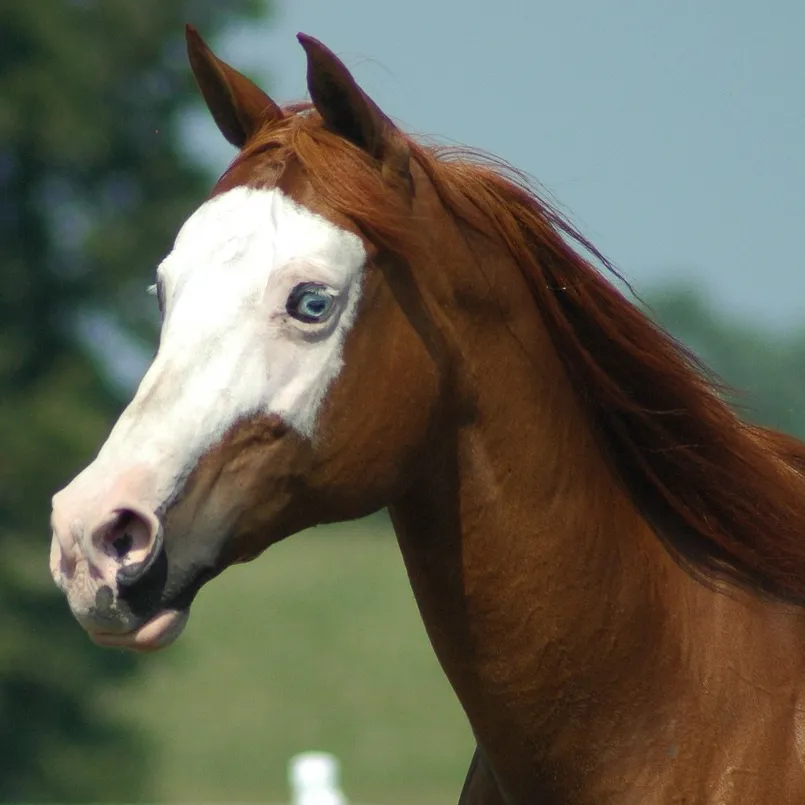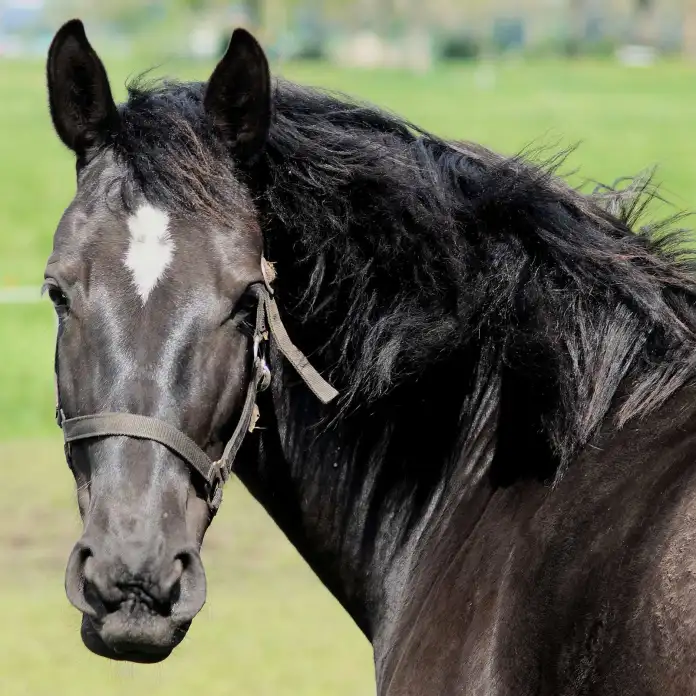Menu

Do horses have better hearing than humans and dogs? How do horses hear compared to us? And what is the function of the ears beyond capturing sound? In collaboration with two American professors, the FEI has explored the importance of a horse's hearing and how it communicates with its ears. Here are the ten most important conclusions.
Horses can detect sounds over a broader spectrum of frequencies than humans, even though they react to roughly the same decibel levels. People with good hearing pick up sounds in a frequency range that is between 20 and 20,000 Hertz. The frequency ranges for a horse's hearing lie between 55 and 33,500 Hertz, and they are most sensitive to sounds that lie between 1,000 and 16,000 Hertz. This aligns well with the experiences of many who work with horses, knowing that they can often be alert to something that we can't hear at all. In comparison, dogs can hear frequencies up to 45,000 Hertz, and possibly higher.
Horses' hearing is similar to that of other mammals. This means that it's usually animals making most of the sounds that horses can hear - giving them the opportunity to detect them. Once a horse has detected an animal through its hearing, it can begin to visually investigate it to determine whether it's a threat or not. However, horses don't use this ability as much as they rely on their sight alone. This is primarily because horses have such good vision that they can see all the way around themselves. Thus, they are not solely dependent on their hearing, but also make use of sight to detect threats.
As prey animals, horses prefer to move in herds, and they communicate more through their body language than through vocalisation and sound. They depend on their body because they use it to express themselves to each other, among other things by using the angle of their ears, bobbing and nudging with their heads, kicking with their legs, etc.
But besides body language, horses also, of course, use their hearing to detect any changes in their environment. For example, horses in a stable may not always see each other, but they can at least hear each other. Just imagine the calming sound of hay being chewed or the sound of a snort in the neighbouring box. In this way, horses audibly soothe each other.
Like all mammals, a horse's ears are shaped to capture, locate, and amplify sounds - and yet a horse's ears are different. Due to the musculature around the ears, they can rotate 180 degrees independently of each other, allowing the horse to locate a sound without turning its head. Because a horse's hearing is not as good as that of other animals, the rotation of the ears helps it capture sounds. This is likely also the reason that horses raise their heads and rotate their ears around when they hear a sudden sound; they're trying to locate it.
As mentioned, a horse's ears are primarily designed for hearing, but they also use them to express themselves and communicate. When a horse lays its ears back, it usually means it's angry, feels threatened, or is trying to warn another horse. If the ears point forward, on the other hand - as you surely know - it means the horse is alert and listening. If the ears tip all the way forward, and the horse opens its nostrils, it either means that it's very alert or possibly scared, or that it's curious or really interested in something.


Horses with poor hearing can exhibit behavioural changes. For example, they may have trouble responding to the sounds of other horses, or maybe be more nervous than usual. In many cases, hearing loss in horses is not detected as they are good at communicating in other ways.
Hearing loss related to aging does not appear to be as prevalent among horses as it is in humans. A study conducted on young and older horses shows that there is no difference in their hearing-determined reactions. This was investigated in a group of 20-31-year-old horses compared with a group of younger horses under seven years old. This suggests that it's environmental factors, including various noise factors and toxins, that adversely affect human hearing. Horses are often not as exposed to these environmental factors as humans are, and therefore they do not lose their hearing as quickly.
In addition to age-related hearing loss, other factors can also affect a horse's hearing. Horses can be born deaf, they may have had ear infections or even brain diseases or traumas, which can cause hearing loss.
If a horse suffers from hearing loss, it does not have to be a problem for the horse itself - as long as the owner is aware of the issue. The horse may not be able to perceive audible commands, but it will still react like all other horses during training. However, it's important to be aware of understanding the horse's communication needs and through this figuring out how to effectively communicate with it. This can, for example, be done through physical, body language signals, which after all is the language every horse understands best.
Has a horse's hearing developed and adapted over the years? According to the professors, one can only speculate. Because the horses were originally smaller animals, they could also hear higher frequencies than they can now, where they have developed and become larger animals. Therefore, it's difficult to compare. However, there is no doubt that a horse's hearing in some sense has evolved since its ancestors lived millions of years ago.